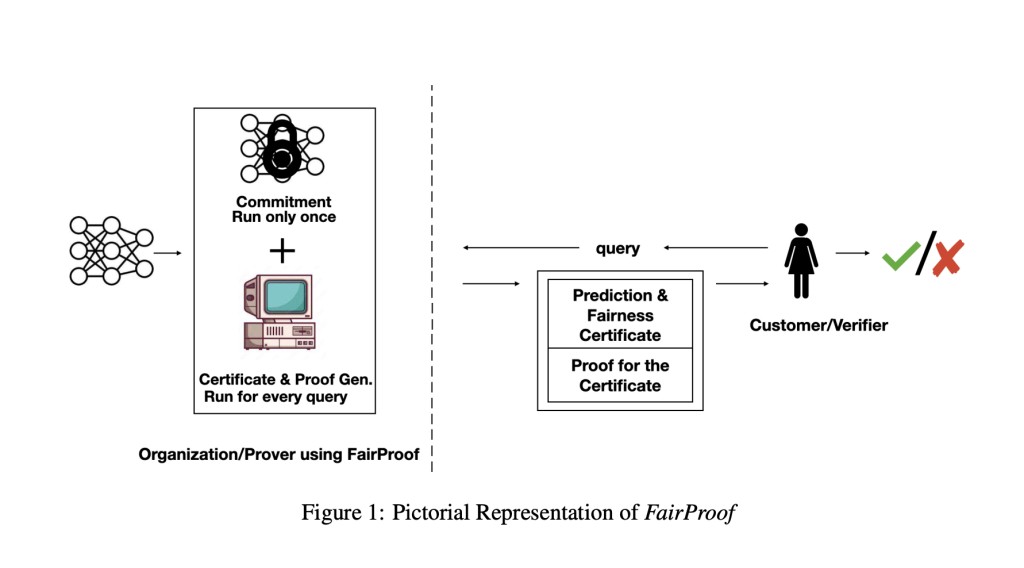The proliferation of machine learning (ML) models in high-stakes societal applications has sparked concerns regarding fairness and transparency. Instances of biased decision-making have led to a growing distrust among consumers who are subject to ML-based decisions.Â
To address this challenge and increase consumer trust, technology that enables public verification of the fairness properties of these models is urgently needed. However, legal and privacy constraints often prevent organizations from disclosing their models, hindering verification and potentially leading to unfair behavior such as model swapping.
In response to these challenges, a system called FairProof has been proposed by researchers from Stanford and UCSD. It consists of a fairness certification algorithm and a cryptographic protocol. The algorithm evaluates the model’s fairness at a specific data point using a metric known as local Individual Fairness (IF).Â
Their approach allows for personalized certificates to be issued to individual customers, making it suitable for customer-facing organizations. Importantly, the algorithm is designed to be agnostic to the training pipeline, ensuring its applicability across various models and datasets.
Certifying local IF is achieved by leveraging techniques from the robustness literature while ensuring compatibility with Zero-Knowledge Proofs (ZKPs) to maintain model confidentiality. ZKPs enable the verification of statements about private data, such as fairness certificates, without revealing the underlying model weights.Â
To make the process computationally efficient, a specialized ZKP protocol is implemented, strategically reducing the computational overhead through offline computations and optimization of sub-functionalities.
Furthermore, model uniformity is ensured through cryptographic commitments, where organizations publicly commit to their model weights while keeping them confidential. Their approach, widely studied in ML security literature, provides a means to maintain transparency and accountability while safeguarding sensitive model information.
By combining fairness certification with cryptographic protocols, FairProof offers a comprehensive solution to address fairness and transparency concerns in ML-based decision-making, fostering greater trust among consumers and stakeholders alike.
Check out the Paper. All credit for this research goes to the researchers of this project. Also, don’t forget to follow us on Twitter. Join our Telegram Channel, Discord Channel, and LinkedIn Group.
If you like our work, you will love our newsletter..
Don’t Forget to join our 42k+ ML SubReddit
The post FairProof: An AI System that Uses Zero-Knowledge Proofs to Publicly Verify the Fairness of a Model while Maintaining Confidentiality appeared first on MarkTechPost.
Source: Read MoreÂ

